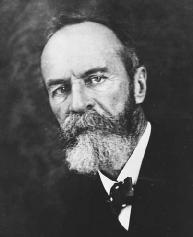 To William James
To William James
Box Hill, England. July 27, 1905
Dear Mr James,
I have just re-read, or read for the first time in some cases, the series of articles you have been good enough to send me. They have given me new light on many points—most important of all on the relation of “Humanism” to “Truth”. It is perfectly clear that opinions are not all equally good on pragmatic principles, since some fulfill their pledges with advancing experience while others do not. I am inclined to think that you would meet with less misapprehension and hostility on this score if you gave out, in dogmatic form, how you conceive “the final system of reality” (which you assume on page 3 of the article on “Experience of Activity”) to be made up. I imagine you would say it is a historical system, its substance being feelings which may or may not be appropriated by persons. It would remain to work out a physics of these feelings, and to show how proposition might be essentially true or false descriptions of this historical flux.
I have got a clearer notion, I think, than I had when we talked in Athens, of what makes my way of seeing things puzzling to you—a mystery, you called it. You expect me to look at everything as I look on the things I don’t believe in—religious myths, e.g.—which can have, of course, a symbolic or pragmatic truth. My nature, on the other hand, compels me to believe in something in quite a different sense, and this something is, in my view, double—material nature with its animation on the one hand, and logical or mathematical forms on the other. These are discovered by us, starting from sensation, and, in the first case, are tested by pragmatic standards.
But we look to them in order to understand the origin of our experience (or its standard in signification) and I, for one, heartily accept them in that rôle. So I embrace materialism on pragmatic grounds—and on transcendental grounds also. The prohibition to believe which, in some expressions of it, pragmatism seems to impose, as if every opinion had to be symbolic and had to be superseded, is what I object to. It is too Hegelian. History, at least, must have a definite constitution, apart from the pragmatic value of knowing it.
With renewed thanks, Yours sincerely, G Santayana
From The Letters of George Santayana: Book One, [1868]-1909. Cambridge, MA: The MIT Press, 2001.
Location of manuscript: The Houghton Library, Harvard University, Cambridge MA.
